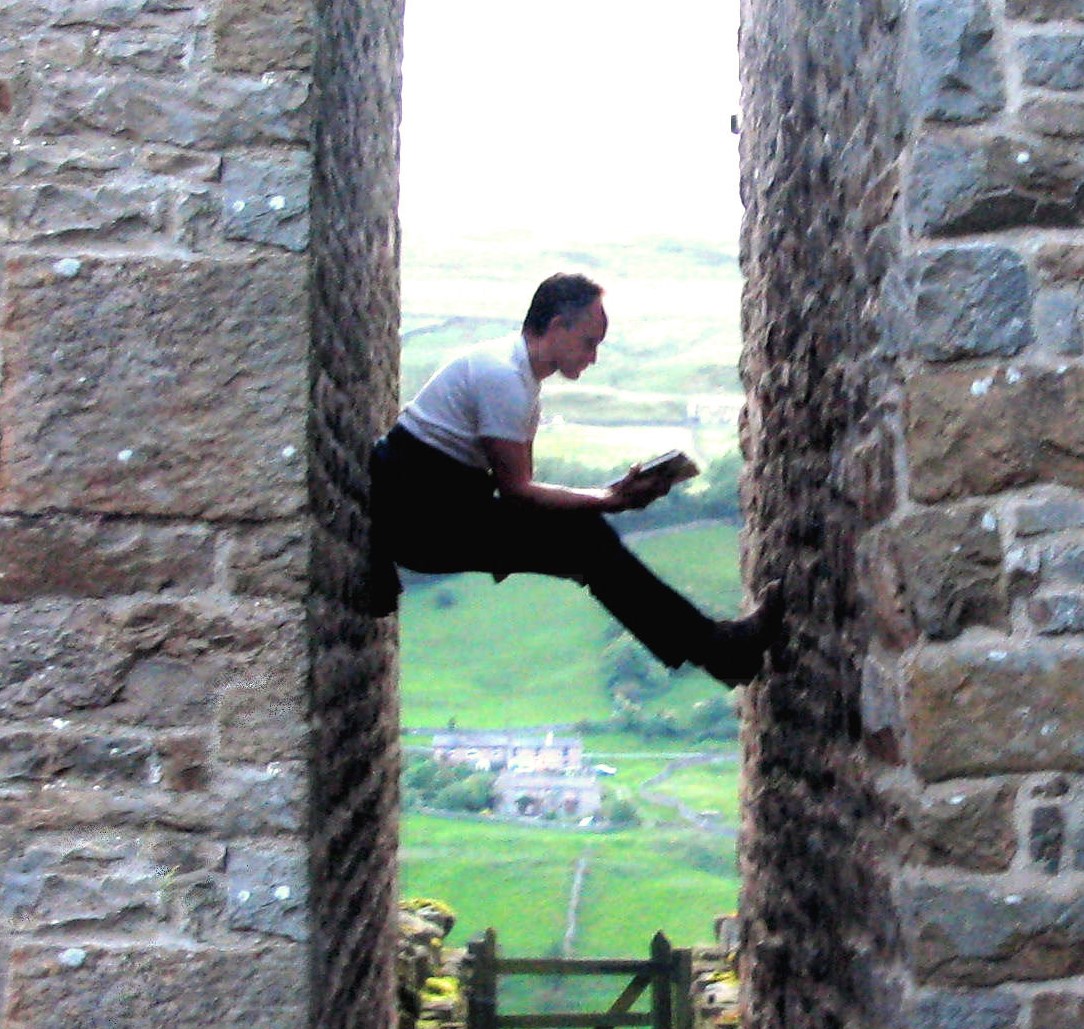 Today I’m welcoming into the first draft hotseat crime writer Harry Bingham. And in Harry’s own words; The twenty-five word bio:
Today I’m welcoming into the first draft hotseat crime writer Harry Bingham. And in Harry’s own words; The twenty-five word bio:
Forty-something. Married. British. Kids. Living in Oxfordshire. Runs The Writers’ Workshop. Used to be a banker. Now a full-time writer. Likes rock-climbing, walking, swimming. Done.
When you decide to write something new, what is the first thing you do?
Drift around for three months or so waiting for ideas to come fluttering in.
Do you have a set routine approaching it?
I write a book a year, so I usually spend the summer dealing with the final edits on the previous manuscript. I make sure I get together with my editor and my literary agent. I also try to get the rest of my work life in order, so that I can burrow away from the world in autumn/winter.
Pen and paper or straight to the keyboard?
Straight to keyboard. What’s a pen?
How important is research to you?
Not very. That’s kind of a crime when it comes to police procedurals, but my books are more like police unprocedurals . . . that just happen to be set in a busy city police headquarters. I don’t mind that some authors like to research very intensively, but it strikes me as weird the idea that research is and should be at the heart of crime fiction. Why should it be? The novel is, at is heart, an imaginative act and the characters, the writing, the story should have primacy. That said, I do always try to get my facts straight and if I chose to ignore something, I am normally aware that I’m choosing to ignore it.
How do you go about researching?
As I say, I don’t do much. I do always make sure that I write with a good internet connection, though: I find the net invaluable for a million odd little facts. Also, because I write first person in a woman’s voice, I do always find myself checking details of clothes, shoes and that kind of thing, because women speak about those differently from men. That’s fine – it’s easy research to do – but then I get followed around by those remarketing ads asking me, ‘Would sir like a nice skirt for summer? A pair of skinny jeans, perhaps?’ Sir doesn’t, but I won’t say he isn’t sometimes tempted . . .
How do you store everything; ideas, research, images that catch your eye?
Um. Another embarrassing answer. I don’t store anything ever. If it sticks in my head, it doesn’t need storage anywhere else. If it doesn’t stick, then I didn’t care about it anyway.
Tell us how that first draft takes shape?
I write in a pretty linear way, one chapter after another. I’ll certainly have periods where the work surges forward, but mostly it just comes pretty steadily.
Are there any rituals you have to do or items you must have with you while writing that draft?
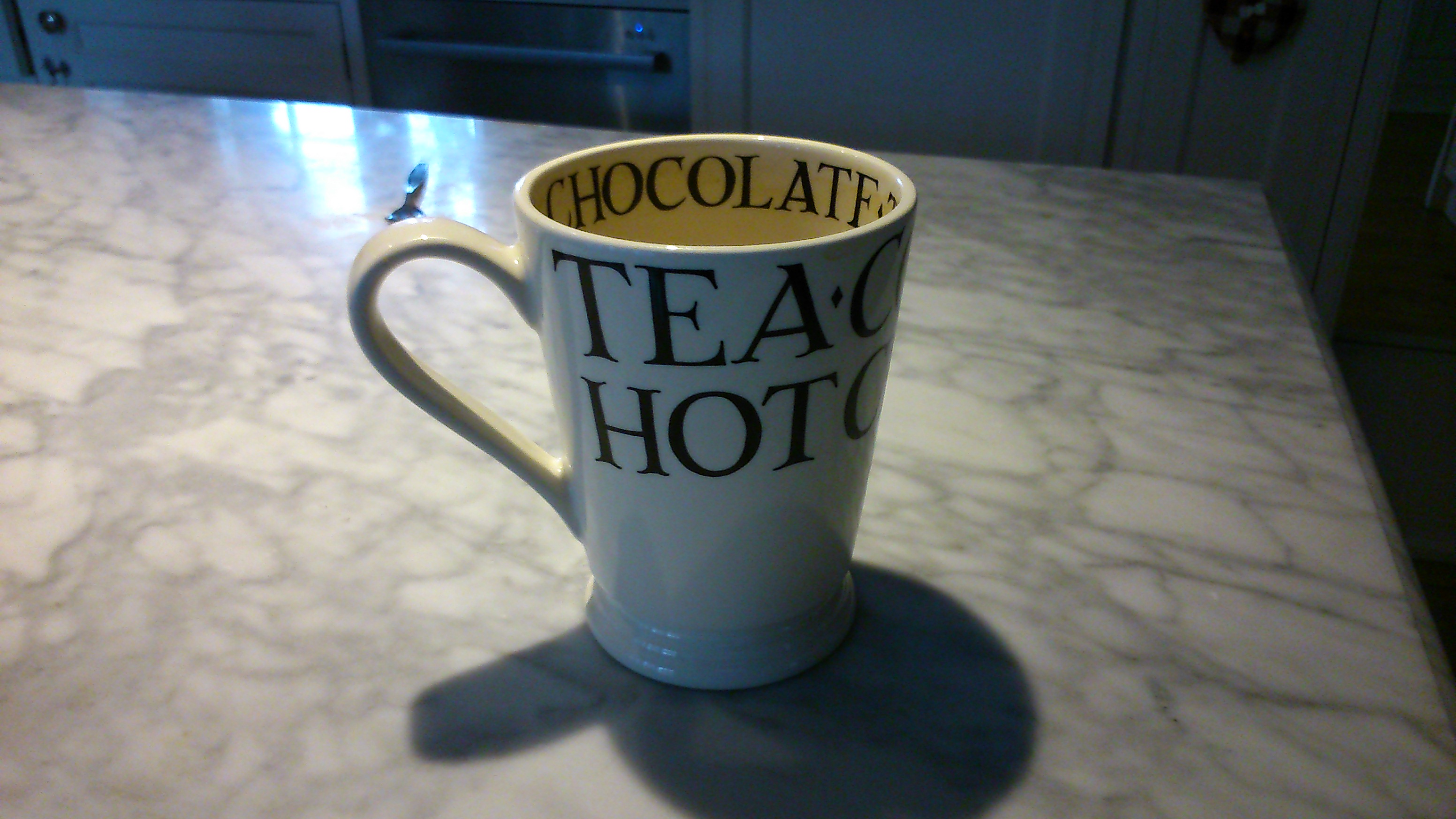 Tea, tea, tea, tea. I drink all the time. I once calculated that I drank about 5 pints of tea in a working day and produce, let’s say, about 1,500 words, so that’s about 2,400 words to the gallon.
Tea, tea, tea, tea. I drink all the time. I once calculated that I drank about 5 pints of tea in a working day and produce, let’s say, about 1,500 words, so that’s about 2,400 words to the gallon.
Does the outside world exist or are you lost to us for a period of time as the magic works?
I’d love it, I’d really love it, if the outside world just shrivelled up and disappeared, but I have two eighteen month old kids and two businesses to manage. (The Writers’ Workshop offers editorial services and creative writing courses; Agent Hunter is a tool that helps writers locate literary agents.) I’ve got brilliant people looking after those businesses for me, but they do demand a trickle of time nevertheless. And the kids? We tried letting them go feral and just scavenge through the winter, but that didn’t really work out, so it seems they need some attention too.
What does your workspace look like?
Your question assumes I have a workspace, but I write anywhere at all. I do like going to Jaffe & Neale, a wonderful bookshop that also runs a little cafe. If it’s sunny, I usually write outside. If it’s sunny and cold, I usually write outside with a million scarves and coats on and stay there until I can’t feel anything in my fingers. I can write on a sofa, or at a desk, or just sitting on a cushion on the floor. I’m not Mr Structured, me.
Edit as you go or just keep getting words out?
I do edit as I go, not to the point of obsession, but as a working practice that helps me capture the flow from the previous day. So I’ll typically tinker around with the previous chapter or two before finding the juice that will carry me through a new one.
I see many writers counting words in a day. Word counter or other method of keeping track of progression?
I don’t give a damn, in all honesty. I like writing, which means I don’t have any sense that I’m painfully clawing my way to a longed-for release. On the contrary, I’m normally sad when I come to the end of a book: I miss it. And I’m also aware that the muse doesn’t deliver in set units. Some days, I’ll scratch around filling in little logical holes and patching earlier gaps. Those things don’t give much sense of forward progress, but they’re just as important as the days when I really hit a vein and the work surges forward.
So, that first draft is down. Roughly how long did it take? And what shape is it in?
Maybe five or six months. And it’s in pretty good shape, partly because of the editing I’ve already done and partly because I’m a fairly practised author now. (The novel I’m just completing will be my tenth, but there have been a few works of non-fiction too.)
In what format do you like to read it through, e-reader, paper or the computer screen?
I don’t have an ereader and I can’t be bothered with paper. So I read as I wrote, on a laptop.
What happens now that first draft is done?
I’ll go on editing. I love the work, because it’s putting a polish on a story and set of characters that I now feel very close to. I’ll go on editing until I really can’t justify it any more, then off the book goes to my literary agent and my editor. I’m always nervous when I send it, but the response is usually a nice one.
Thanks for digging into the depths of the first draft. It’s been a pleasure having you.
Harry’s links
My books – my writer website, with info on all the Fiona Griffiths books.
Writers’ Workshop – courses, editing, and the ever fabulous Festival of Writing.
Agent Hunter – the best literary agent finding tool on the planet.
The Strange Death of Fiona Griffiths
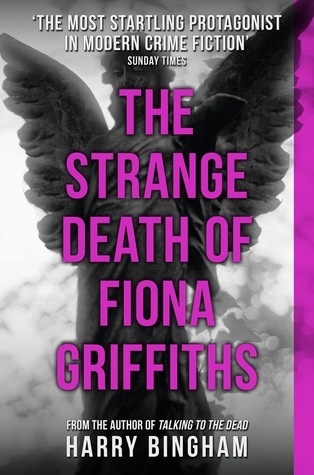 When DC Fiona Griffiths says ‘yes’ to her policeman boyfriend, it’s an affirmation that she wants finally to put her psychological breakdown behind her, and become a resident of ‘Planet Normal’ like everybody else. But she still can’t resist the challenge of an undercover policing course, and finding it remarkably easy to assume a new identity, she comes top of the class. So when an ingenious payroll fraud starts to look like the tip of a huge criminal iceberg, Fiona is selected to infiltrate the fraudsters’ operation. Posing as a meek former payroll clerk now forced to work as a cleaner, Fiona Griffiths becomes Fiona Grey, hoping the criminals will try and recruit her – knowing that if they discover her real identity, she’s dead meat. But as Fiona penetrates deeper into their operation, coming closer to identifying the mastermind behind it, she faces another, even more frightening danger – that her always fragile grip on her sense of self has now been lost and she may never find her way back.
When DC Fiona Griffiths says ‘yes’ to her policeman boyfriend, it’s an affirmation that she wants finally to put her psychological breakdown behind her, and become a resident of ‘Planet Normal’ like everybody else. But she still can’t resist the challenge of an undercover policing course, and finding it remarkably easy to assume a new identity, she comes top of the class. So when an ingenious payroll fraud starts to look like the tip of a huge criminal iceberg, Fiona is selected to infiltrate the fraudsters’ operation. Posing as a meek former payroll clerk now forced to work as a cleaner, Fiona Griffiths becomes Fiona Grey, hoping the criminals will try and recruit her – knowing that if they discover her real identity, she’s dead meat. But as Fiona penetrates deeper into their operation, coming closer to identifying the mastermind behind it, she faces another, even more frightening danger – that her always fragile grip on her sense of self has now been lost and she may never find her way back.
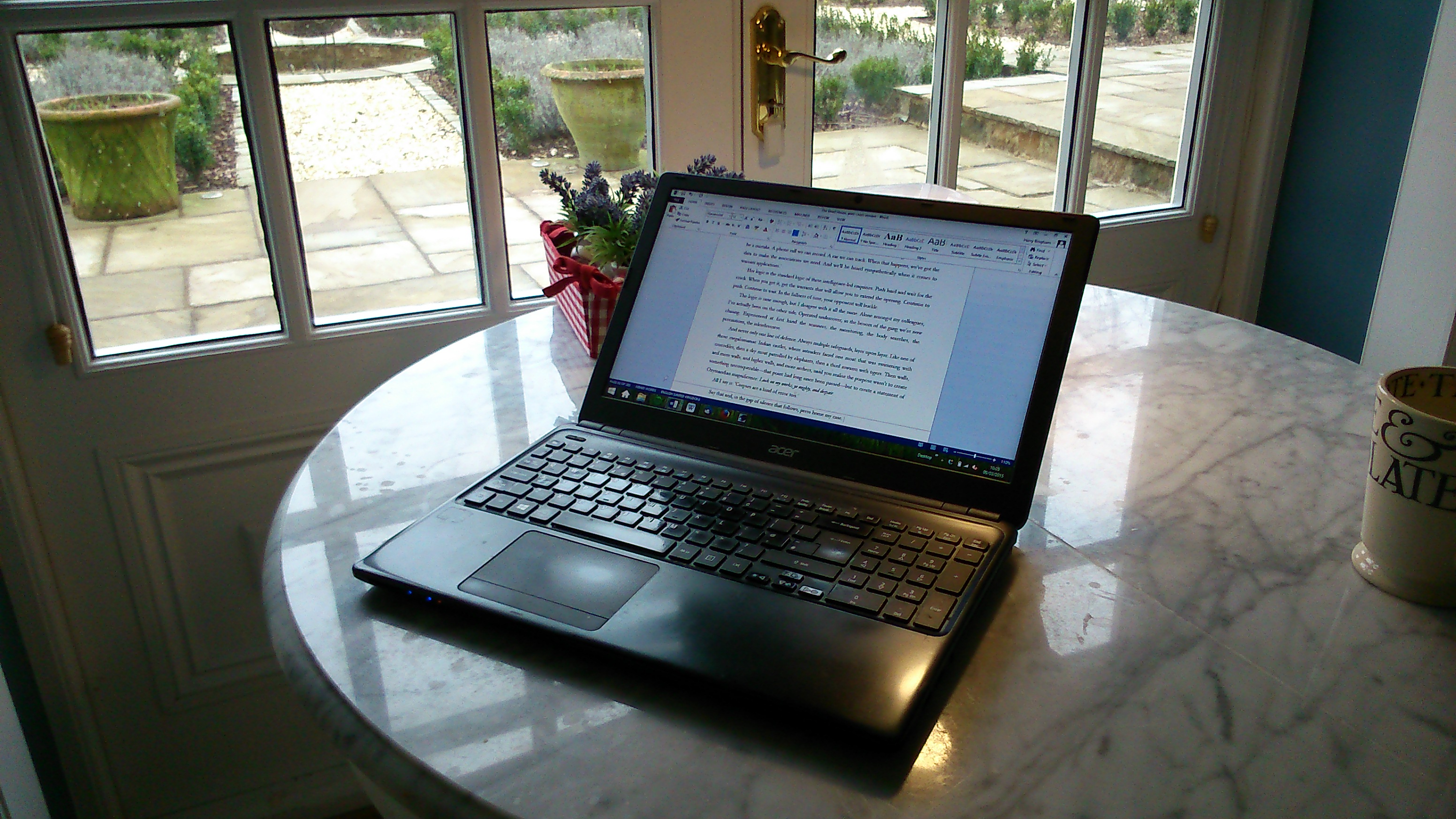

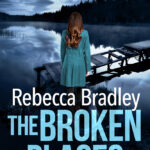

Phew – an unstructured writer who doesn’t like research all that much and isn’t terribly organised at note-taking… Maybe he’s just saying that to be polite and bring some hope to us all, but thank you, Harry Bingham!
Rebecca – Thanks as ever for this feature. I always learn.
Harry – I do a lot of the things that you do (i.e. let ideas simmer for a bit, straight to the keyboard, etc..). But my ‘writing poison’ is coffee. Thanks for sharing your first draft process.
Had to laugh that he let the kids go feral for a while!
Love the photo.
That’s spooky. I’m half way into the first of Harry Bingham’s books.
Great interview, very eye catching photo, if I tried this I wouldn’t be very dignified! 😉
If the book’s anything like Harry, it will be fresh, original, captivating, and mind-boggling.
Have only had the opportunity to read one book by this author – Love Story with Murders- unique quirky and beautiful cover on the version I read. Thanks for chatting with Harry and sharing this interview with us Rebecca.
Reblogged this on Working Title.
Thanks for a very enlightening interview. It’s nice to know there are writers who have so few rules yet who remain successful. I’ve not read any of Harry Bingham’s novels but I have his book ‘Getting Published’ from the Writers’ and Artists’ Yearbook which is incredibly helpful.